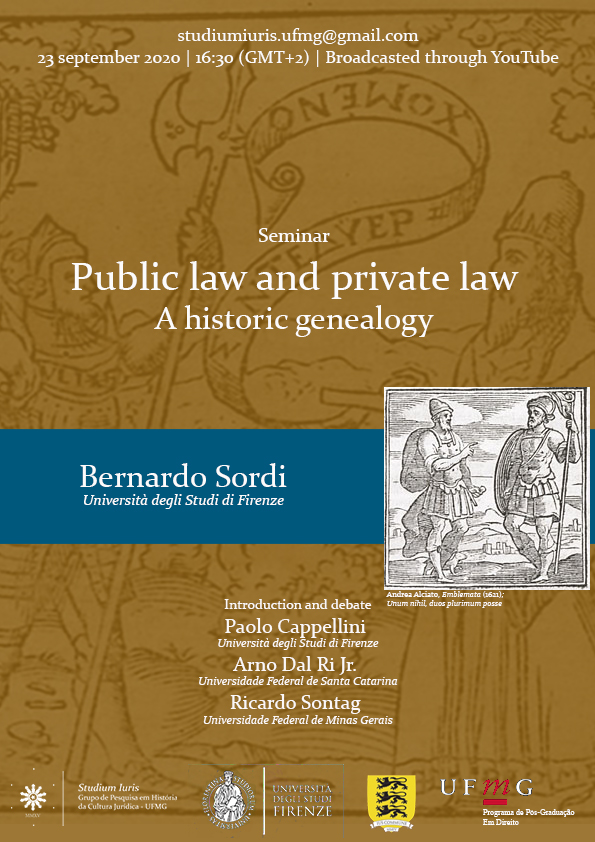Seminar Public Law and Private Law: a historic genealogy

Prof. Bernardo Sordi will discuss on wednesday, 23 September his new book Diritto pubblico e diritto privato. Una genealogia storica (Bologna, Il Mulino, 2020). The webinar will be held in partnership between Studium Iuris – Research Group on History of Legal Culture (UFMG), Ius Commune – Research Group on History of Legal Culture (UFSC) and Università di Firenze (phD School in Legal Sciences, curriculum Theory and History of Law).
The conference will be held in English.
Time: 11:30 (Brazil); 16:30 (Italy)
The conference will be broadcasted through YouTube in this link: https://www.youtube.com/channel/UCUFoIR7kgWpf2VgK3NtsaZg
Subscription Link (non mandatory): https://docs.google.com/…/1vvyH1v0oaqhwgii…
The questions during the conference shall be made through a form, which will be made avaliable during the event.
“From the point of view of jurists, public and private are ancient words, but the long itinerary that announces this great dichotomy starts only with the arrival of the modern state, which shapes public law, at the same time as private law is captured by the orbit of legal individualism. With the demise of the ancient regime, the dichotomy will be turned into the foundation of the entire legal system, embodying the typically nineteenth-century balance between state and society, sovereignty and rights; the twentieth century, on the other hand, will disrupt these boundaries, introducing compromises and mixtures between state and economic, social and individual, general interest and special interests. In more recent years, the intensity of economic globalization and the impoverishment of constitutional programs suggest a new primacy of private law. In the perspective of a renewed unity of the legal system, this book investigates the relationship between the ‘two laws’ in their stratified historicity, inviting us to reflect on the need for a reasonable balance between personal and collective needs, rights and duties, guarantees and powers”.







